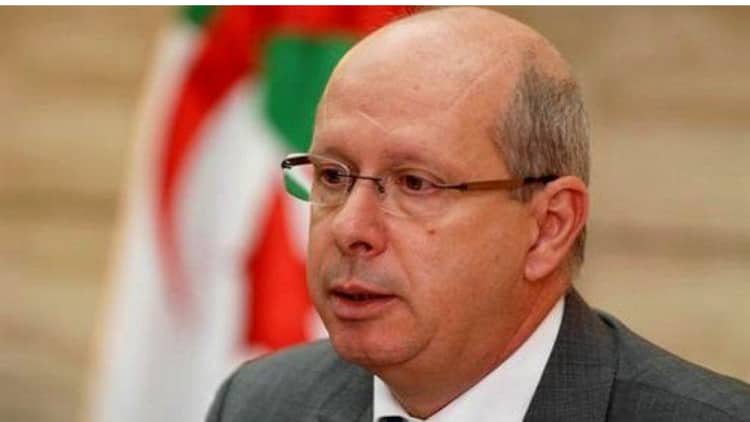The Diplomat
Algerian President Abdelmajid Tebboune yesterday dismissed his finance minister, Abderrahmane Raouya, who was responsible for the order to freeze trade with Spain. Hours earlier, the official Algerian Press Agency (APS) published an article harshly attacking Foreign Minister José Manuel Albares.
The dismissal of Raouya, who had only been in office for five months, comes less than a week after the Professional Association of Banks and Financial Institutions (ABEF) instructed Algerian banks, most of which are public, to freeze direct debits for foreign trade transactions with our country.
The measure, which significantly affected Spanish exporting companies, prompted Minister Albares to travel to Brussels to seek the support of the European Union and the European Commission’s warning to Algeria of possible action if it found that the Association Agreement between the Maghreb country and the bloc had been breached.
The dismissal of the finance minister is interpreted in diplomatic circles as a step taken by President Tebboune to avoid problems with the European Union, but not so much as a step towards resolving the diplomatic crisis with Spain.
Just yesterday, shortly before Abderrahmane Raouya’s dismissal, Algerie Presse Service (APS), Algeria’s official news agency, which reports directly to the Ministry of Communication, launched a brutal attack on Albares, branding him a “pyromaniac” for having implied that Russia is behind the latest measures adopted by Algeria in its relations with Spain.
In an article entitled “Algiers-Madrid: Albares’ pyromaniac’s flight forward”, APS blames the minister for the crisis, underlines his “blunders” and questions “the capacity of a diplomat unworthy” of Spain and the Spanish people for having gone to Brussels to seek his support after Algiers announced that it was blocking trade with our country and suspending the Spanish-Algerian Friendship Treaty.
The agency also accuses Albares of ‘manipulating’ the EU’s High Representative for Foreign Policy, Josep Borrell, and of ‘tarnishing the credibility’ of the European Commission for the ‘unfounded statement against Algeria’ that it published following the minister’s visit.
In addition, it describes Albares’ statement from Brussels as a “grotesque declaration”, assuring that Spain seeks dialogue “with language that is disrespectful and, above all, unworthy of his position” and that contrasts with other “illustrious Spanish diplomats and foreign ministers inscribed in the pantheon of international diplomacy”.
But the most “grotesque thing about this quidam” in charge of Spain’s foreign policy, according to APS, is that on his return from Brussels “he gave anyone who would listen to him to understand that it is neither more nor less Russia, Putin himself, who is at the origin of this crisis”.
Algiers saw this as a “regrettable hint to the United States and NATO to come to the aid of a small minister overcome by his own vileness, after having tried in vain to mobilise the EU”.
In Algeria’s opinion, according to the article, it is Albares, who is described as an “amateur minister”, who is responsible for the “flight forward” which led to the change in the government’s position on the Sahara and which has “ridiculed his government by isolating it both within parliament and from Spanish public opinion”.
The Minister of Foreign Affairs “does not cease to aggravate a crisis (…) which could have been avoided” but did not take into account that the “betrayal of the Saharawi cause” would arouse more than “a passing epidermal anger on the part of Algeria”. “It is a misunderstanding of Algeria and its defence of international legality”, the article argues.
APS ends its attack on the minister by asserting: “History will not retain much about Albares, because nothing great is born of smallness. Exacerbating the crisis between Algeria and Spain and wrapping it in language borrowed from the Cold War does not make Albares any bigger either”.






